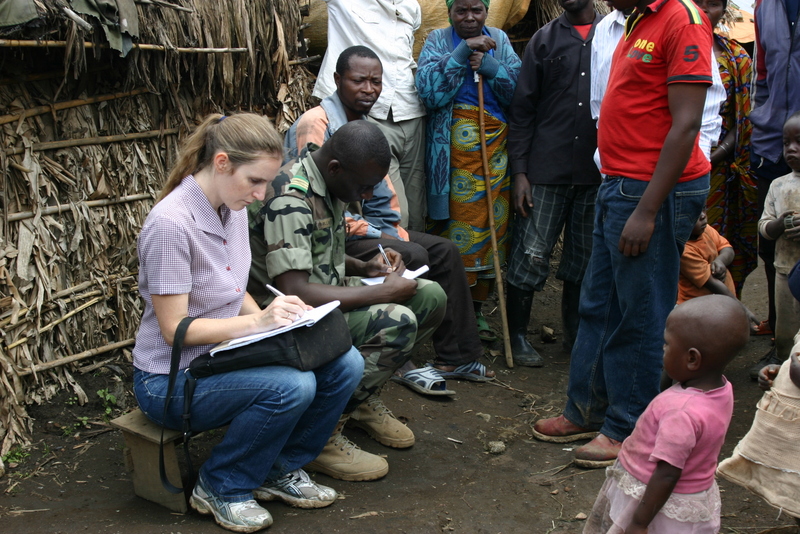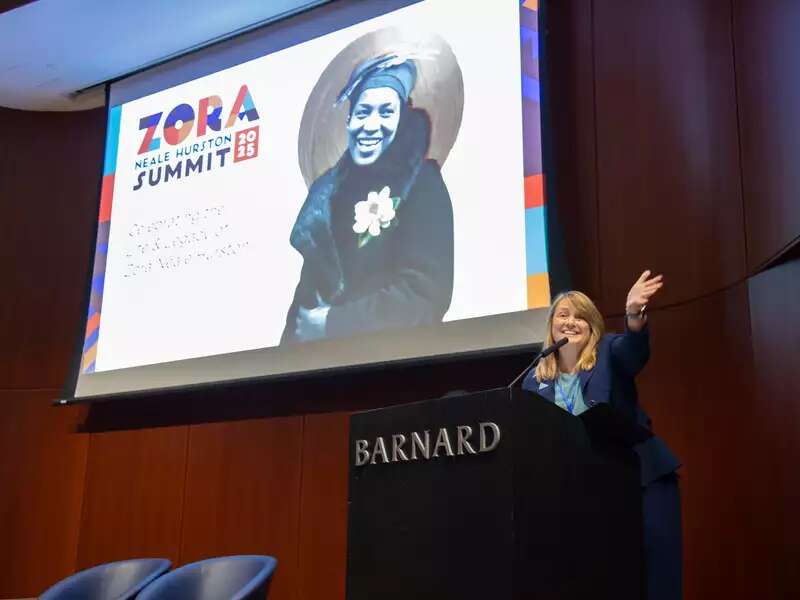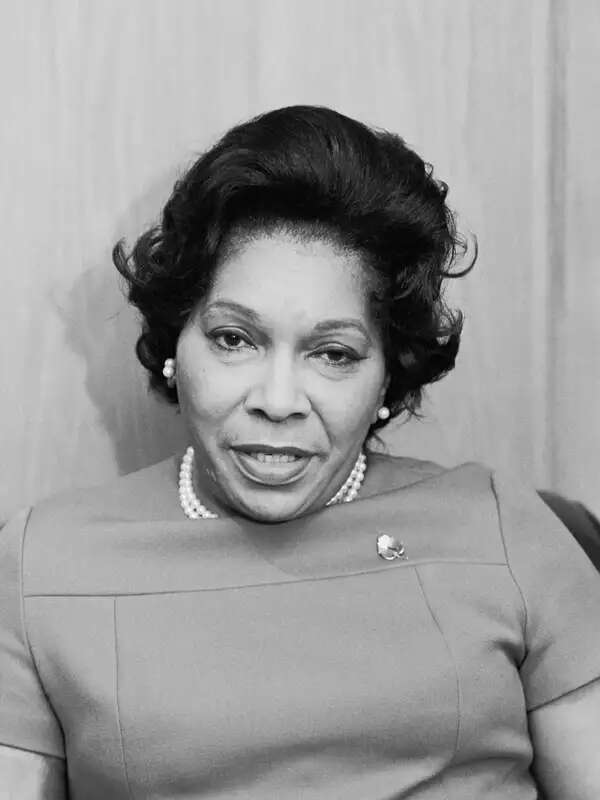 Severine Autesserre, assistant professor of political science, specializes in international relations with a focus on civil wars, peacebuilding, peacekeeping, humanitarian aid, and African politics. Her new book, Peaceland: Conflict Resolution and the Everyday Politics of International Intervention, examines how the day-to-day lives of peacebuilders influence the effectiveness of their work in conflict zones using a primary case study on the eastern Democratic Republic of Congo and comparative research in Burundi, Cyprus, Israel and the Palestinian Territories, South Sudan, and Timor-Leste. Below she answers questions about key themes in her book, her own experiences both as a peacebuilder and a researcher, and her advice to undergraduate students interested in peacekeeping careers.
Severine Autesserre, assistant professor of political science, specializes in international relations with a focus on civil wars, peacebuilding, peacekeeping, humanitarian aid, and African politics. Her new book, Peaceland: Conflict Resolution and the Everyday Politics of International Intervention, examines how the day-to-day lives of peacebuilders influence the effectiveness of their work in conflict zones using a primary case study on the eastern Democratic Republic of Congo and comparative research in Burundi, Cyprus, Israel and the Palestinian Territories, South Sudan, and Timor-Leste. Below she answers questions about key themes in her book, her own experiences both as a peacebuilder and a researcher, and her advice to undergraduate students interested in peacekeeping careers.
Q: Can you talk about the title of your book, Peaceland? What does this term refer to?
A: The title “Peaceland” comes from an idea presented by Raymond Apthorpe. In his work, he talks about “Aidland” as a metaphorical world inhabited by aid workers, with their “own time, place, and economics.” This concept is an interesting tool for analyzing peacebuilding, too. Peaceland is a similar metaphorical world inhabited by peacebuilders—people who are recruited based on their expertise and technical skills, experts in human resources management, in engineering, in election organizing, in all types of fields that are essential to peacebuilding efforts. They are sent to parts of the world that are in turmoil, moving from place to place and building a social and professional network of expatriates.
Q: Your book examines how the day-to-day lives of peacekeepers/interveners impact the effectiveness of their efforts. Did you come across particular habits or lifestyle patterns that had surprising repercussions?
A: I’ve been studying this world for 15 years and was myself an intervener, so I knew what to expect. But there were still elements that surprised me. For example, one theme of the book is that the way peacebuilders live their personal lives actually impacts the effectiveness of their work. It is common sense, but in my research, it was surprising to me that peacebuilders don’t really mention the need for socializing and networking with their local counterparts. What do they do at the end of the work day? Who do they relax with? Who do they go to parties or have drinks with?
Expatriates who spend their free time with other foreign peacebuilders end up living in a bubble. The lack of contact with the host population means that interveners don’t have a real understanding of the place where they live and work, and they often appear arrogant and disengaged to local people. My research shows that peacebuilders who seek out local people and spend time with them outside of work are better integrated into the community and this improves all aspects of their work—they’re safer, they’re better practitioners, their work is more tailored. In some cases, individuals have stopped following standard security routines and opted instead for more of an acceptance approach, like being integrated in the local communities and being accepted by all stakeholders, including all of the relevant armed groups. These types of relationships can be very important, and can actually be safer than withdrawing and building a network just with other peacemakers.
However, there are understandable reasons for not interacting socially with local people, too. These are dangerous, stressful jobs, where people can die because of errors, and these realities mean that there are times when peacebuilders need to withdraw with people who understand what they’re going through. As one of my interviewees put it, “You need to eat your own food, listen to your own music, and be in your own world.” So Peaceland can also be an important space for coping and it’s not always a bad thing—but it’s important to look at unintended consequence and how we can diminish these practices.
Q: You've spent time in conflict zones as an intervener and as a researcher. Can you talk about the differences between these roles and experiences?
A: As a researcher, you have so much more freedom to pursue the kind of things that you find interesting. Interveners are often very limited by their mandates, and they have very little time and so much to do every single day. Many of them want to learn about the history, culture, politics, and language of the region, but there just isn’t time given the urgency of the work they need to get done. As a researcher you have time to meet people—for example you can speak with someone for hours and hours, which is essential because sometimes it takes several hours to get to the interesting and important topics. And, as a researcher, after you have been on site for months or years, people start seeing you as part of the furniture and someone they can trust, and from there you can get much deeper in your understanding of the conflict.
Q: What advice would you offer to undergraduate students who are interested in pursuing careers in peacekeeping?
A: It depends on whether a student wants to get a job, or wants to become a good peacebuilder. To get a job, it is important to gain strong thematic expertise for working in conflict resolution, election organization, or other specific skills that apply to any conflict scenario. To be a good peacebuilder, students need to specialize in a specific area of the world—learn the language, read as much as possible about the region, travel to these places and see if they can handle the pressure of working in this type of environment.
Either way, my first advice is to get Master’s degree. Start by making sure to study a foreign language as an undergraduate—at Barnard and Columbia they can study Swahili or Wolof for instance, and French, Arabic, and Spanish are also very useful. Students here can also take my classes on peacebuilding and civil wars, to gain some background in understanding and analyzing conflicts, and SIPA offers many classes on peace keeping, mediation, and more. Barnard does a wonderful job of encouraging study-abroad opportunities, I’ve had students go on fantastic programs in Rwanda, South Africa, and Uganda, where they’ve been able to see and learn about places that have been through conflict. There are also great internship opportunities here in New York, with the United Nations and non-governmental organizations, and also in Washington, D.C. However, whatever experiences students pursue, I always remind them that it should never be at the expense of their academics, because getting into graduate school will be essential.


